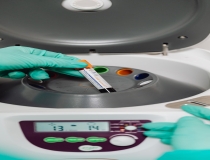Platelet-rich plasma (PRP) injections have risen in popularity in recent years, showing great potential for treating various conditions. From joint pain and sports injuries to hair loss, the treatment can promote healing in the targeted area. What’s more is that the injections are made from the patient’s own tissues, minimizing the risks of allergic reactions and infections.
With that said, platelet rich plasma treatment options are relatively new. This leads interested patients to wonder, is PRP injection safe? What are the risks involved in the procedure?
If you are an athlete seeking pain relief, these questions are valid. It’s natural to want to ensure what you’re about to undergo is safe and effective. To help you determine if PRP injections are right for you, we walk you through the basics and answer commonly asked questions.
The PRP Injection Process
PRP treatments generally consist of the following steps:
- Blood is drawn from your arm to yield platelet-rich plasma.
- The blood is spun down in a centrifuge to separate red blood cells, white blood cells, and plasma.
- The derived platelet-rich plasma is injected into the area to be treated.
The idea behind PRP therapy is to send plasma, which contains a high concentration of your platelets, to the body part to be treated. PRPs can trigger healing processes like cell regeneration in the said area, helping expedite the recovery.
Every PRP appointment may take around an hour, and you may have to return for several sessions to maintain its positive outcomes. What’s good about this minimally invasive treatment method is that patients can usually return to their daily activities without limitations.
PRP Therapy Risks and Potential Side Effects
Platelet rich plasma treatment is autologous. This means that it uses substances coming directly from the patient. As such, PRP injections reduce the risks of allergic reactions that typically arise when injecting medications like cortisone or hyaluronic acid.
With that said, you may experience specific side effects associated with any procedure involving a needle, including:
- Soreness and bruising at the injection site
- Nerve injuries
- Infection
- Tissue damage
Since producing PRP involves a blood draw, it’s also essential that you eat beforehand and stay hydrated to prevent feeling lightheaded.
Is PRP Injection Safe?
Since PRP injections use your tissues, they are safer than other injectable medications. They can also be used alone or with other procedures. The injection may cause some pain, swelling, and bruising, but these tend to improve after a few days.
The most significant risks in PRP treatments come from how your blood is prepared. If the resulting plasma isn’t handled correctly, you may be prone to developing an infection.
For your safety, it’s best to work only with skilled medical providers with a reputation in PRP therapies. You also want to ensure your trusted facility follows the same safety measures that transfusion centers have to avoid complications.
Is PRP Safe During Pregnancy?
Objectively, PRP therapy is safe during pregnancy as the injections contain only the patient’s biological material. However, there are other factors to consider in this case . Although rare, infections and allergies can happen after injections. The resulting bodily stress can endanger the fetus.
Who Can Have PRP Therapy?
Is PRP injection safe? Most people will have no problems after the treatment, but it is not recommended for individuals with any of the following conditions:
- HIV or AIDS
- Hepatitis C
- Cardiovascular disease
- Any type of blood cancer
These conditions can affect the platelets and the resulting plasma, ultimately keeping the therapy from delivering the expected results.
Recovery Time for Platelet-Rich Plasma Injections
When platelet-rich plasma injections are administered after an injury, you may be advised to rest the affected area. However, this recovery time is more related to the injury than the injection itself. Those who received PRP injections for musculoskeletal issues may need six weeks or more to recover.
Know if PRP Is Right for You
Platelet-rich plasma treatments are indeed relatively new. However, with continued research and evolving technology, PRP injections are proving to be an effective and minimally invasive alternative for pain relief and improved function. Its autologous nature also reduces risks of side effects and complications, allowing patients to return to everyday life as soon as possible.
If you are considering PRP therapy, please don’t hesitate to consult The Chicago Cell Therapy & Regenerative Medicine. We can help you determine if this is the best treatment for you. Most importantly, our experts in PRP injections are here to guide you through the treatment and let you return to your sports or activity quickly.


 Thanks a lot for getting my hip right. Looking forward to a full recovery and a great season. Thanks again for everything.
Thanks a lot for getting my hip right. Looking forward to a full recovery and a great season. Thanks again for everything.










